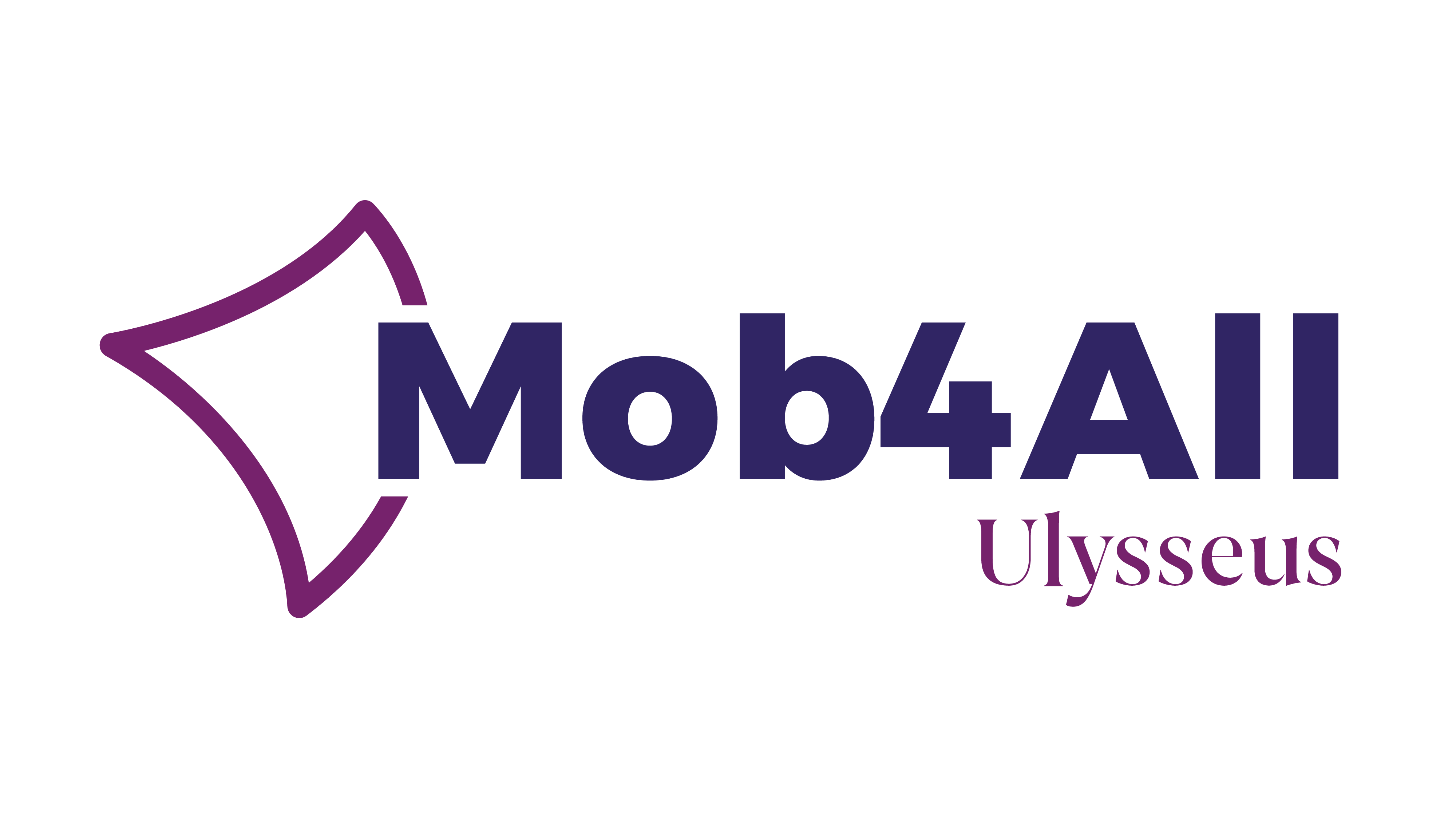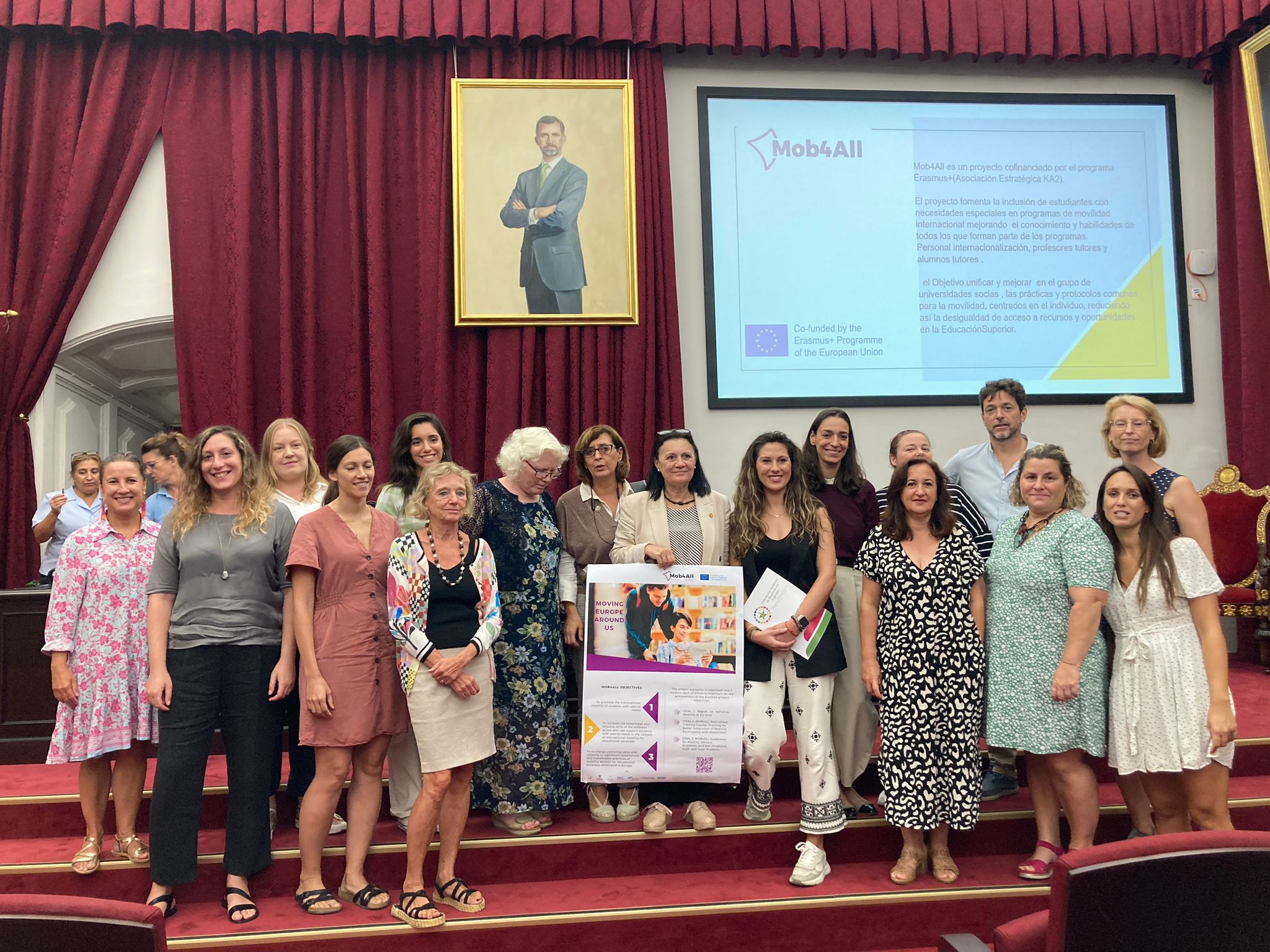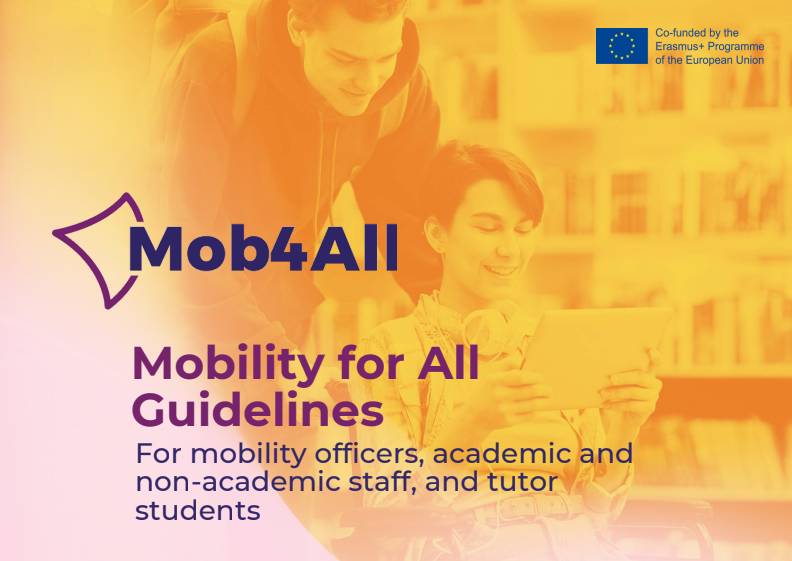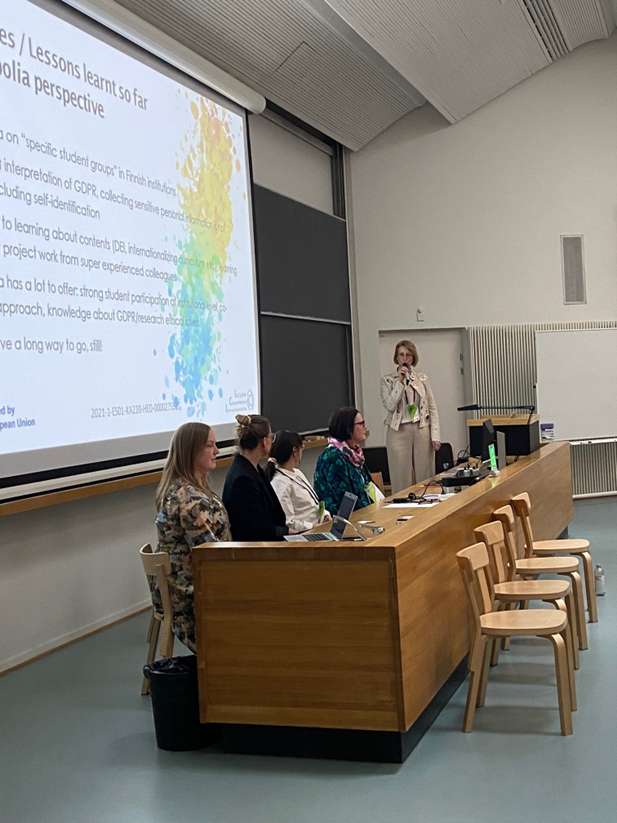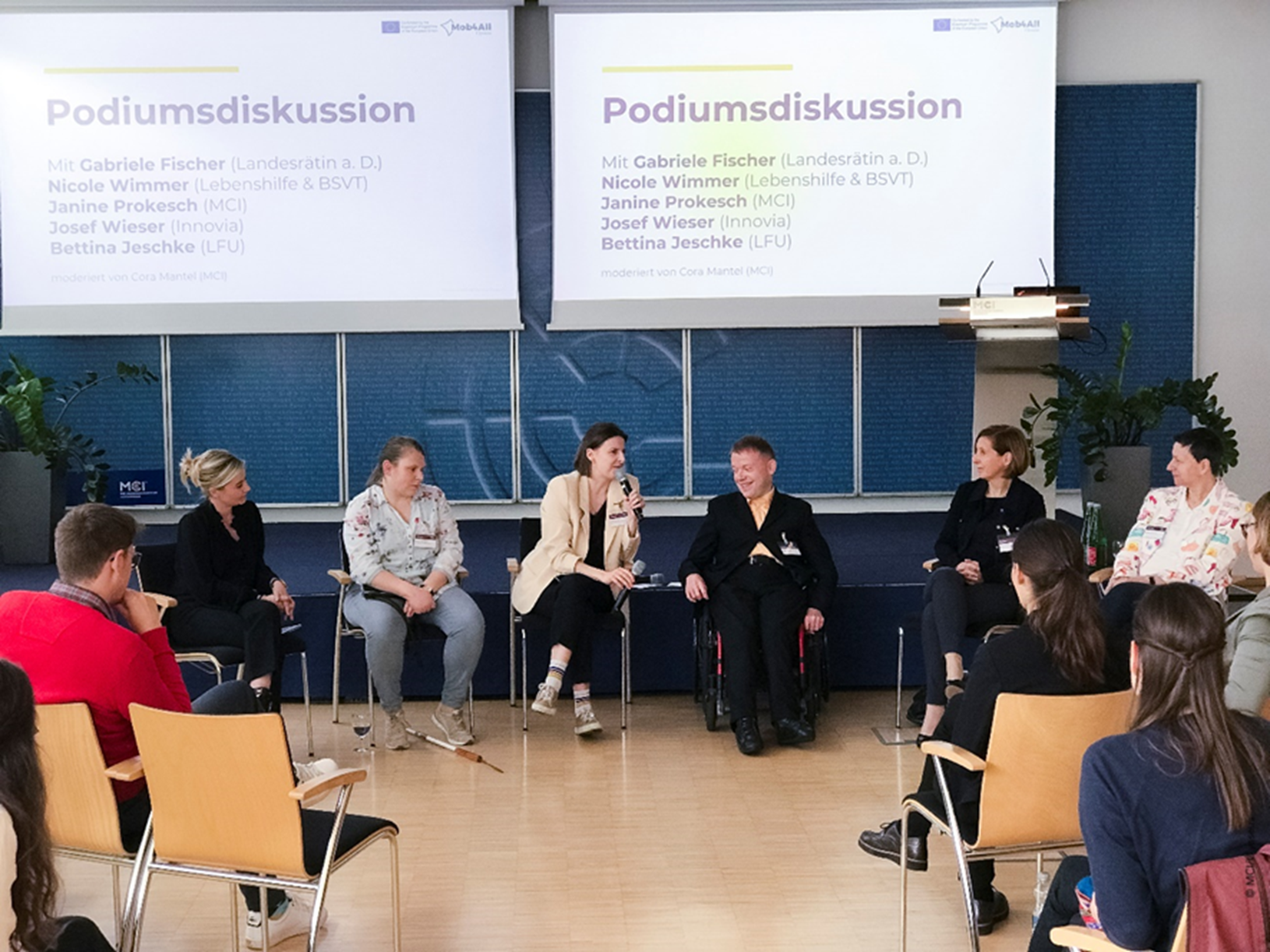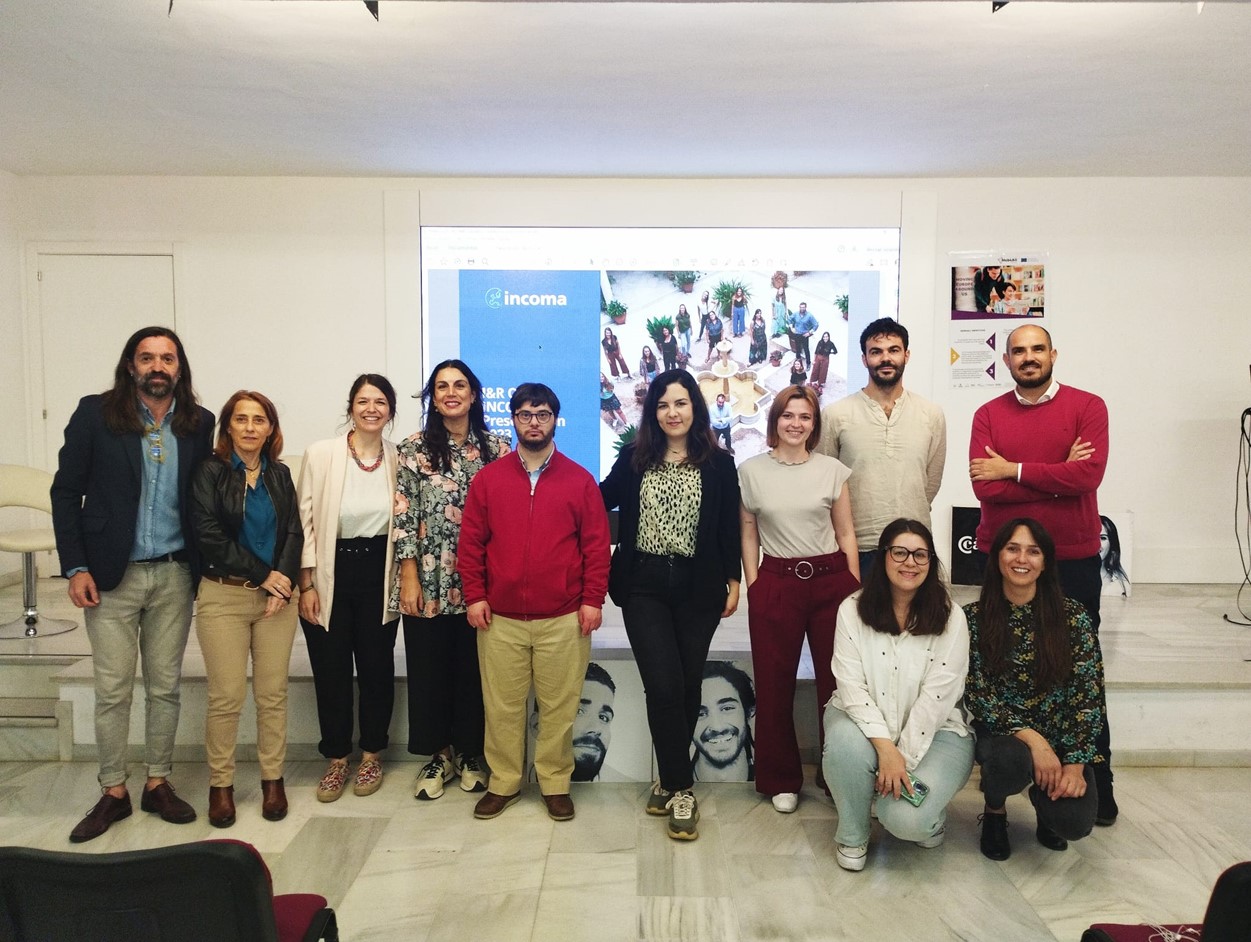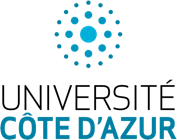The University of Seville held the final event of the Erasmus+ Mob4All project of the Ulysseus European University, which aims to improve the university mobility of students with disabilities. To this end, a training guide will be presented to volunteer students, internationalization and diversity staff, tutor teachers and teachers of the online training course developed by the project.
The program also included a round table on the evolution of the needs of students with disabilities at university, with the participation of members of ONCE, the Asperger’s Federation and Association, ESN (Alumni Erasmus Spain Association) and the Andalusian Federation of Families of Deaf People (FAPAS) and representatives of the European universities involved in the project: the University of Seville, the Université Côte d’Azur (France), the University of Genoa (Italy), MCI | The Entrepreneurial School® (Austria), Haaga-Helia University of Applied Sciences (Finland), INCOMA (Spain) and UNISER (Italy).
Training guide
The Mob4All Guidelines for Mobility Officers, Academic and Non-Academic Staff and Tutor Students is currently nearing completion. This guidelines aims to support Higher Education Institutions and the network of actors involved in a mobility giving them tools to guide, accommodate, support and integrate students with special needs in international mobility.
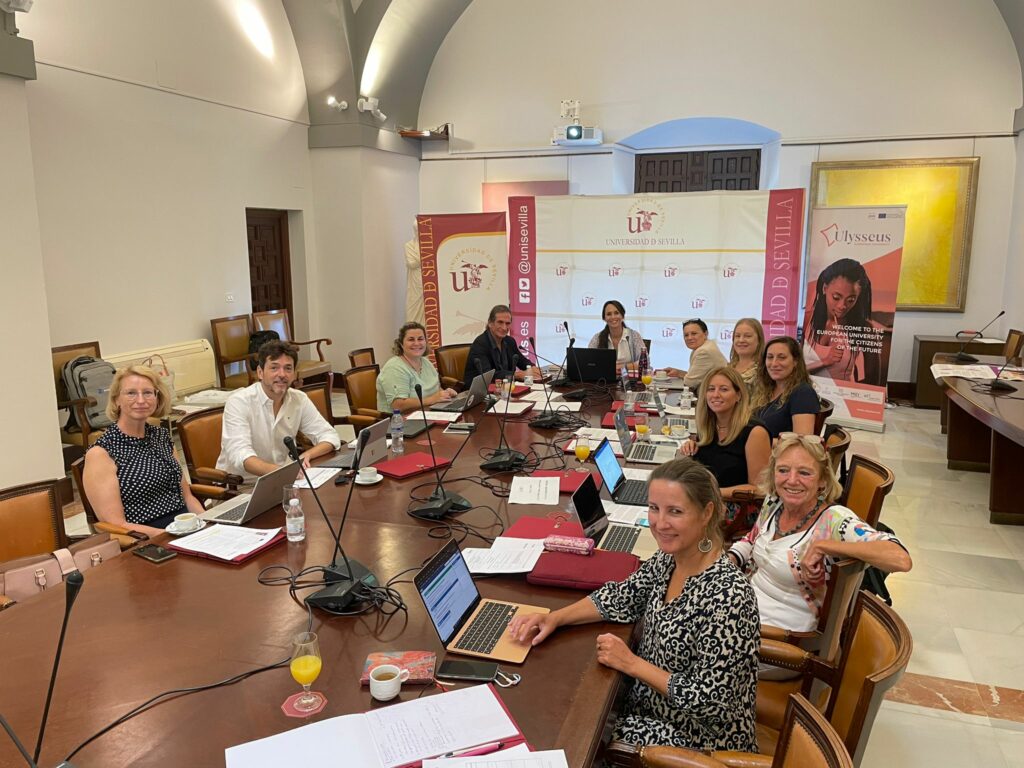
Breaking “the glass ceiling”.
The US delegate for Health Affairs, Rafaela Caballero, explained that the students “come very well prepared, with many skills, but find many limitations for international mobility. We have to work together so that all people have the same opportunities and to break the glass ceiling, all the barriers that we encounter”.
The internationalization of this students requires that all the improvements that exist in the university of origin must be in the universities of destination, so that mobility only involves, like other students, adapting to a new language and customs. Thus, the project aims to ensure that all Ulysseus universities work together to understand and be competent in diversity. Not coincidentally, a study by ONCE, carried out in Spain, shows that the mobility of students with special educational needs represents 0.01% of all mobility, which is practically negligible.
